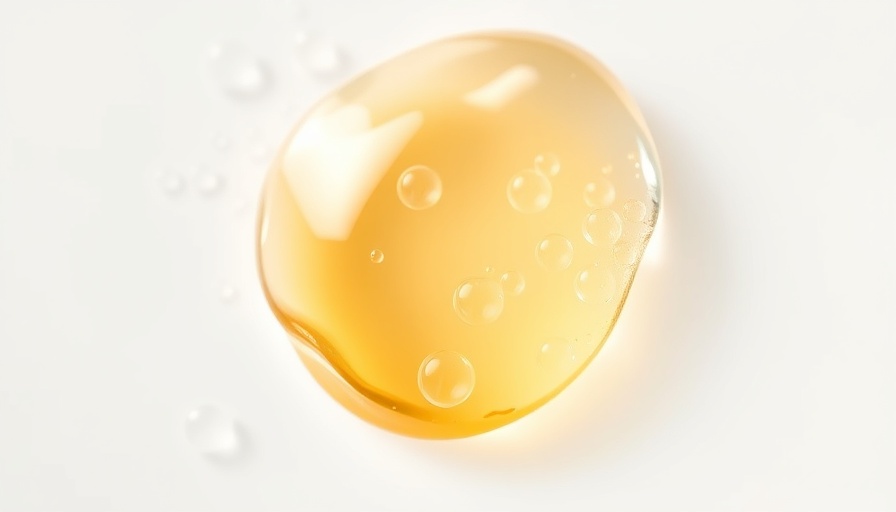
Understanding THD Ascorbate: The Superior Vitamin C
As holistic health practitioners, it’s vital to stay informed about the ingredients we recommend to our clients. Vitamin C is undoubtedly one of the giants in skincare, but when it comes to efficacy and stability, THD Ascorbate – Tetrahexyldecyl Ascorbate – stands out. What sets this oil-soluble ester apart from traditional water-soluble vitamin C forms, like Ascorbic Acid? Its ability to remain stable allows it to deliver potent antioxidant properties without the irritation often associated with other forms of vitamin C.
The Importance of Skin pH Balance
Your skin’s natural pH level hovers around 5.0; thus, using products with a significantly lower pH can lead to irritation and discomfort. For many with sensitive skin, this means that traditional vitamin C can feel harsh and overwhelming. THD Ascorbate, however, bypasses this issue by not needing a low pH environment to activate its benefits. This approach minimizes discomfort, paving the way for a more effective skin treatment for those wary of the common stinging sensation linked with other vitamin C products.
A Deep Dive into Skin Benefits
Consistent application of THD Ascorbate has been reported to yield an even tone and brighter complexion, reducing visible signs of aging and hyperpigmentation. This is especially beneficial for practitioners targeting issues like sun damage and melasma. When incorporating this ingredient, practitioners can feel more confident in recommending a product that won’t compromise skin integrity.
Comparative Analysis: THD Ascorbate vs Traditional Vitamin C
Unlike Ascorbic Acid, which can lose potency quickly when exposed to air, light, and water, THD Ascorbate remains stable for longer periods, offering a consistent skincare experience. Practitioners should weigh in on these comparisons when advising clients, as every individual’s skin reacts differently to ingredients. Selecting the right vitamin C is crucial for private and professional skincare routines alike. Additionally, clients often wonder, "What essential oil combinations for skin can complement THD Ascorbate?" This invites exploration of pairing essential oils such as rosehip or lemon, known for their skin-enhancing properties, with THD to maximize results.
Common Misconceptions About Vitamin C
While many consumers believe that all vitamin Cs are created equal, the truth lies in the chemistry and formulation. Some associate all vitamin C ingredients with the same efficacy despite the profound variations in their solubility, stability, and absorption. Educating clients about these differences empowers them to make informed choices about their skincare.
Future Trends in Skincare Innovation
Looking ahead, the skincare industry may witness an increasing trend toward formulations that incorporate THD Ascorbate alongside natural oils and botanicals, aligning with the growing demand for holistic approaches. For practitioners, this could mean advocating for products that are not just effective but also stress-free for the skin.
Engaging with Essential Oils in Skin Care
As we explore THD Ascorbate, we should also consider how essential oils can serve complementary roles. For instance, when combined effectively, essential oils like peppermint and lemon not only enhance the absorption of THD but also address specific issues such as skin tightening and pigmentation. However, practitioners must carefully educate clients on utilizing these oils correctly to avoid adverse reactions.
Your Action Towards Skincare Enlightenment
In the ever-evolving world of skincare, understanding the best ingredients to recommend is crucial. By embracing THD Ascorbate and enhancing it with suitable essential oils, holistic health practitioners can provide a well-rounded approach to skincare. Engage with your clients about the benefits and intricacies of these products, and encourage them to explore their skincare journey informed and excited. Are you ready to take your skincare recommendations to the next level?
 Add Row
Add Row  Add
Add 




 Add Row
Add Row  Add
Add 

Write A Comment